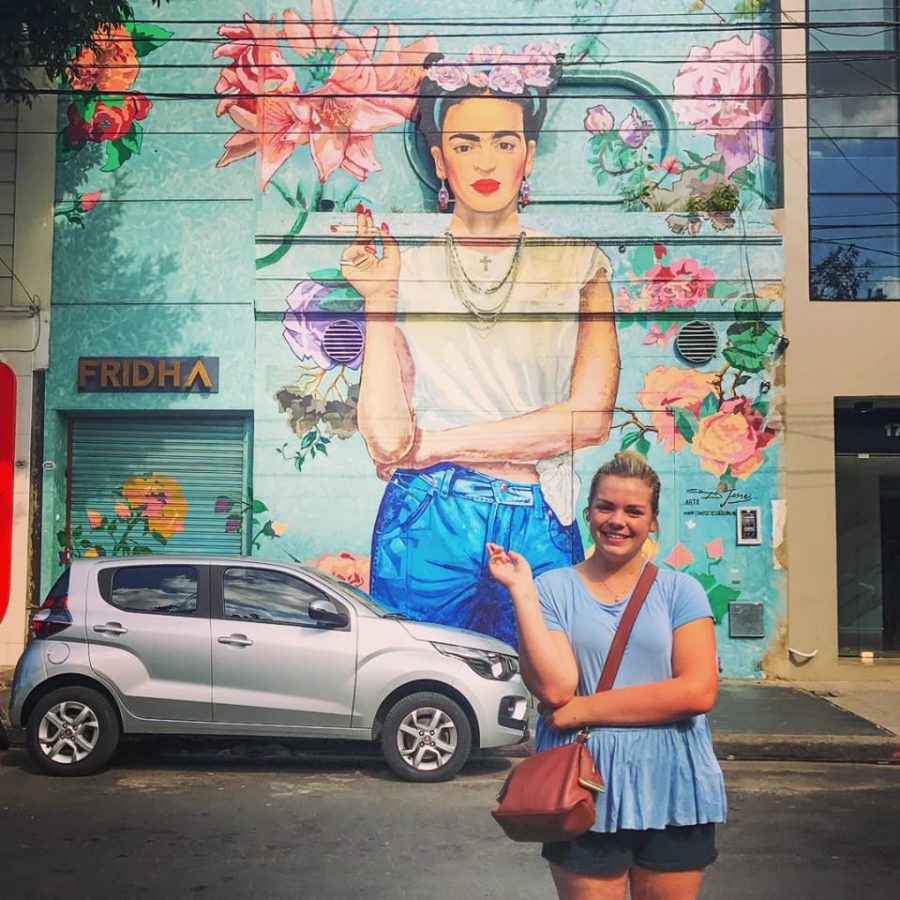A journalist’s journey in Argentina
February 13, 2018
Hello, Hilltoppers! You may recognize my byline from stories last year about university budget problems or dining service fees. This semester, however, instead of scrambling to find important news stories around campus, I’m spending three months studying Spanish in Buenos Aires, Argentina. Alas, the Herald has yet to get rid of me.
I’ll start by telling you about my first day, which was a little overwhelming. Even seven years studying Spanish hadn’t completely prepared me for being fully immersed in the language: signs, passing conversation, every transaction and interaction is in Spanish.
I don’t think I did much to prepare myself for living in another country for a semester apart from overpacking. After my plane landed, one of the first things I wished I had done was learn how Argentinians greet one another. When I found my program director waiting for me, I reached out my hand to shake his, but he kept coming, so I went in for a hug, but that’s not what he was going for either. Turns out people kiss each other on the cheek when greeting one another, which my program director assured me is the “proper” thing to do in Argentina.
After stepping into the 90 plus degree heat, I remembered reading somewhere that air conditioning was not standard in Buenos Aires, and by noon, I was almost ready to board a plane and head back to the freezing weather in Bowling Green. I related most to the kid who at 3 p.m. pulled from his backpack a Ziploc bag containing a single pill, which he said was his sixth and final Ibuprofen of the day.
However, after the first rough few days, which included an unexpected visit from a paramedic, Buenos Aires started to feel like just any big city I’d been to in the United States, except with more impressive architecture and, of course, Spanish.
It’s scary talking in a new language to people who grew up speaking it, but so far everyone has been very understanding if I have to say “Perdón, no entiendo,” in response to a question. People use the English they know to explain unfamiliar words to me, and store clerks turn the register around when I’m not sure exactly how many pesos I owe them at check-out.
My host mom doesn’t speak any English, but luckily, she’s good with hand gestures. We think she could have been an actress in another life. She tells me not to be scared of speaking Spanish or embarrassed about my accent. (Important side note: Saying you are “embarazada” is not how you express you’re ashamed of your poor pronunciation, but rather will have people asking when you’re due.)
On Tuesdays, students in my program go to Mate Club, where we have conversations with locals in Spanish and English over a cup of mate, a popular herbal tea people drink here when gathering with friends and family. You fill a little cup with dried “yerba,” pour hot water over it and drink the tea out of a long straw, or “bombilla.” Here’s the kicker — everyone drinks from the same cup. Apparently germs don’t exist here in Argentina.
I think my proudest moment so far has been when I landed a joke in Spanish at Mate Club last week. It almost made up for the face I made when I found out everyone shares the same cup and straw.
The WKU Study Abroad Office isn’t paying me to write this column, but I do have to say I’m grateful for how easy our university makes it for students to spend an entire semester abroad, especially after talking to students from other American universities about their experiences of getting here. It truly is an amazing experience to learn Spanish grammar and vocabulary every day in the classroom and then be able to put it into practice as soon as you leave school in the afternoon.
I also want to say being here makes me regret not being more intentional about getting to know international students at WKU. I’m thankful when Argentinians are patient and take the time to help me practice my Spanish, and that’s something we could all easily do with students who want to practice their English at WKU. What would be the point of coming here if I only got to practice Spanish with other American students?
Anyway, until next time, devoted readers. If any of you want to come visit Buenos Aires sometime this semester to escape your responsibilities, I would totally show you around.






















